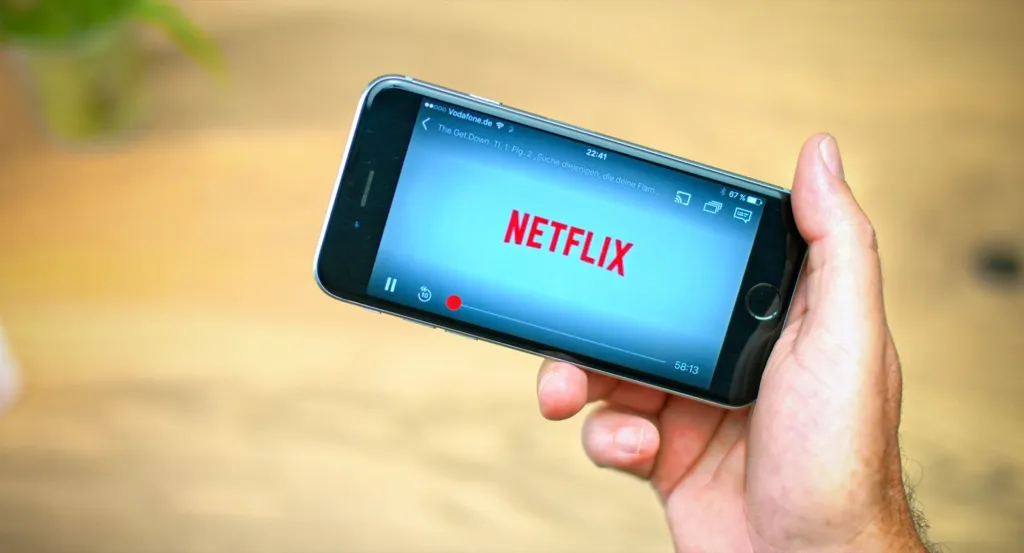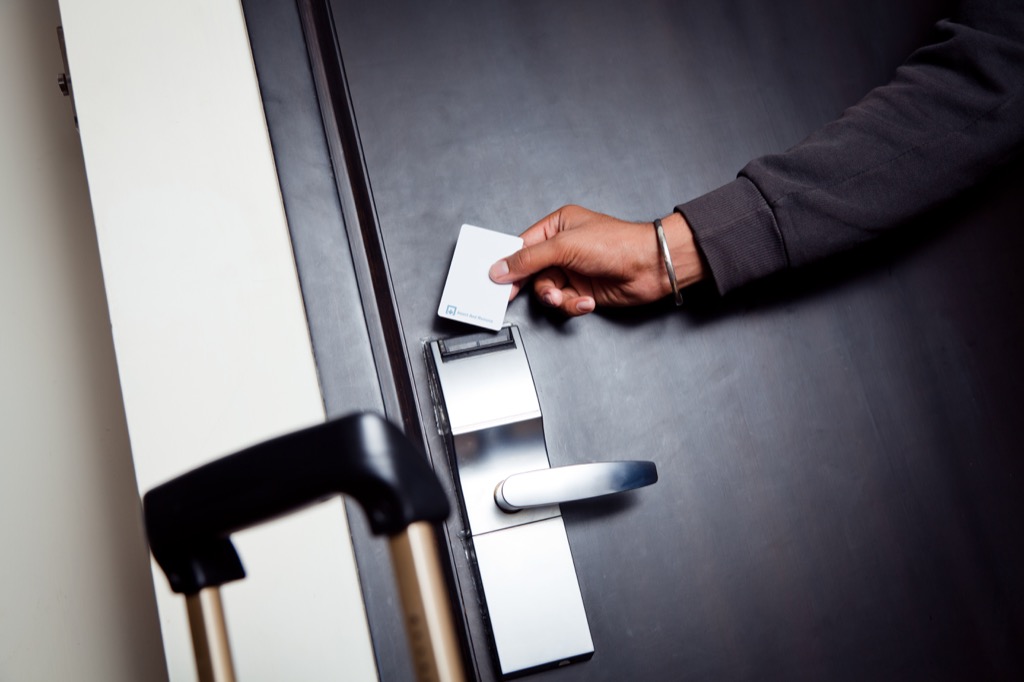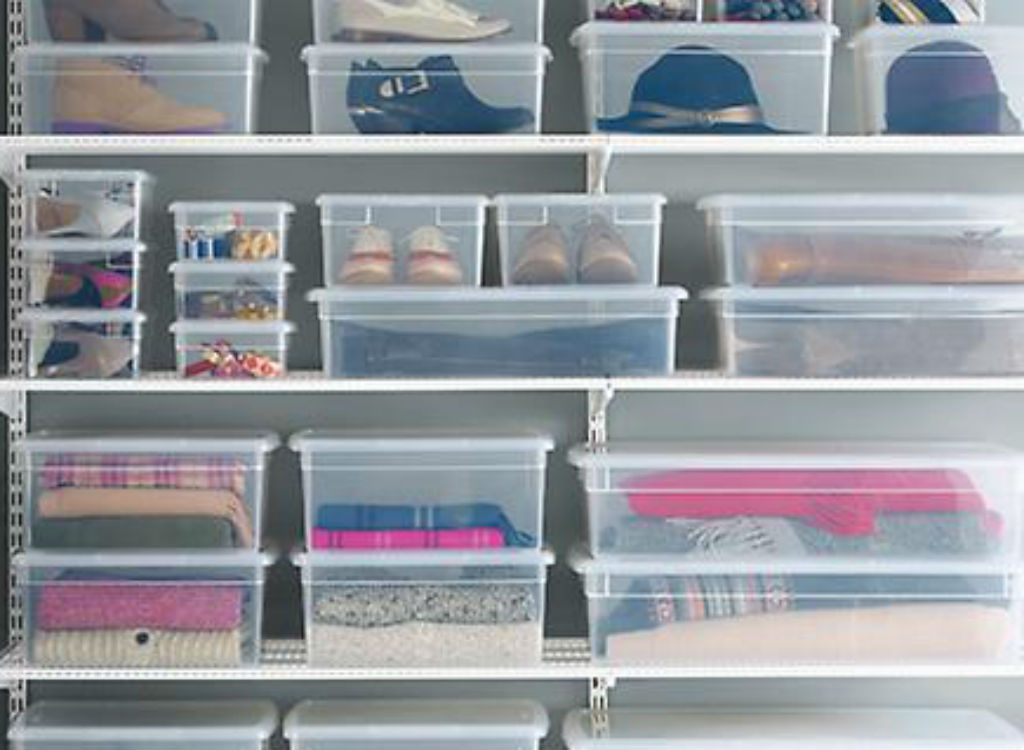18 Dumb Things You're Always Overspending Money On
You really don’t need to be blowing money on these things.

We've all been there: You get to the end of the billing cycle and are left asking, "How did my credit card bill get so high? I just paid it off!"
Then, after a careful review of your charges, you realize that those $10 items really added up, or that a simple night out ballooned into a three-digit charge. Overspending catches us by surprise—it's often done without us even realizing we are doing it. So wise up! Here are 17 things you are spending way too much money on.
1
International Phone Charges

There's a lot to love about traveling, but the seemingly random fees you incur as a result of going abroad are not among those things. Credit cards like Visa and MasterCard levy a 1 percent fee on international transactions and some banks add another 1 to 3 percent on top of that—not to mention charges for using your ATM card.
Using your phone gets even pricier, with exorbitant roaming charges for that photo you posted while traveling in Europe without logging into Wi-Fi or the call you had to make to work while out of the country. But while these extra fees used to be the norm, increasingly, phone companies are offering significantly discounted cell phone packages with international charges included (such as T-Mobile's International Roaming offer), while a growing list of credit cards are available without a foreign transaction fee. Taking the initiative to buy one-off international plan before you travel can save you loads of money before you go.
2
Car Insurance

Shopping for car insurance is a pain, which is probably why, once you've done it, you tend to avoid doing it again, sticking with your insurance company even as their premiums start ticking up. NerdWallet found that 38 percent of U.S. car-insurance holders have not compared insurance costs in at least three years, if ever.
"Set it and forget it doesn't work really well for insurance," Jared Snider, senior wealth advisor with Exencial Wealth Advisors in Oklahoma City, tells U.S. News & World Report. He suggests shopping around for new coverage every two to four years. "It's not uncommon for shoppers to cut their rates by $100 to $200 a year after spending 15 or 30 minutes getting free quotes."
3
Overinsurance

Worse than paying too much for insurance you need is paying at all for insurance you don't need.
Insurance companies play on your fears of what could happen, leading you to buy up that life insurance policy or extra rental car protection that you're extremely unlikely to need. According to InsuranceQuotes.com, 84 percent of Americans don't ask for basic discounts in their insurance. "These discounts can add up to hundreds of dollars per year, and in many cases, they reward people for things they were already doing," Laura Adams, insuranceQuotes.com's senior analyst, told Forbes. As NerdWallet explains, a 35-year-old man would pay more than 10 times more each month for a $500,000 whole life insurance policy than he would for the same amount of term life insurance. It may also be a case where you're carrying outdated life insurance riders, or that you have life insurance you just plain don't need.
4
Anything with Autopay Services

More and more companies are shifting to autopay. That means you're not just paying for a service once and asked to renew, but you're having your card charged automatically on a monthly or yearly basis. This has its benefits—convenience, the removal of late fees—but it also causes complacency. When you aren't reminded that you are paying your bill and taking that moment to review the charges or cost breakdown before agreeing to pay, you ignore often costly extra charges or questionable fees. You also risk being charged overdraft fees should your bank account balance be too low to afford your latest autopayment. Even worse: Many companies secretly marble in "gray charges" into your bill that you're not even seeing. How's that for not cool?
5
Streaming Services

Compared to cable, signing up for Netflix seemed like such a good deal. But then you signed up for Amazon Prime and several other specialized streaming channels because they carried specific shows you couldn't get anywhere else, and… you kept on paying, even after you'd binged the shows you wanted and didn't have much more reason to keep paying.
According to research by consulting firm Waterstone Management Group, on average, consumers spend more than twice as much as they think they do on monthly subscription services (including Netflix, Spotify Amazon Prime and more), and 84 percent underestimate how much they spend on them each month.
Cutting down on your lesser-watched subscriptions is one of the easiest ways to put money right back into your pocket.
6
Clothes

Fact: You should never, ever, pay full price on a clothing item. Don't believe us? See here. In 2019, there are far too many tricks up your sleeve for scoring a discount basically everywhere.
7
Buying the Cheapest Option

It might seem counterintuitive, but sometimes the least expensive thing can cost you the most. You might save a few bucks on budget headphones, but a week into using them, the left ear goes out. The $4 umbrella might seem like a frugal choice, but not when it breaks on you at the first gust of wind.
"Cheap spenders see cost as the bottom line while frugal people see value," Kerry Taylor, a consumer finance blogger, author and speaker, explains to Investor Group. "When longevity means more, spend more. But long life isn't always the frugal choice, either." Go for the mid-priced choice and chances are you'll be able to save money and have a product that lasts.
8
Mattresses

On the other hand, don't get trapped into going for the most expensive option out of an assumption that it will be the highest, longest-lasting quality. Mattresses are a classic example of this, selling you on how you'll sleep better with their special materials and cushioning, with prices that can balloon into thousands of dollars.
Much of that final price tag comes from tacking on hundreds of dollars as the mattress is sold through different middlemen and salespeople. Mattress stores make comparison shopping difficult, sometimes giving the identical mattress different names from one store to another. They inflate prices and then claim to offer killer discounts (as Vox puts it, "price tag might claim that a mattress normally costs $3,000 but is currently available for 60 percent off at $1,200. In reality, no one ever pays $3,000; $1,200 is the regular price"). So it can be a minefield to find a place to sleep.
9
Hotel Stays

Like mattresses, a hotel stay is in many ways a necessity (at least when you're traveling), but that doesn't mean you have to go with the fanciest option. Especially as resort fees, taxes, and other surcharges are tacked on to the (already high) room rate, it's an easy way to spend hundreds of dollars for… a good night's sleep?
Instead, services like HotWire.com's secret rates or LastMinute.com's Top Secret Hotels allow you to book top-quality hotels at a discount of 20 percent to 50 percent. Or if you get smart with leveraging loyalty programs and points, you can save even more.
10
Gym Memberships

Few charges are as opaque and inconsistent as gym memberships. You sign up during a promotion that promises you $10 a month, only to learn that there is also an "initiation fee" that tacks on $20, plus an annual membership fee that goes into effect a few months later. Suddenly that $10 a month you thought you were getting has ballooned into a lot more. And that's assuming you actually use it.
According to StatisticBrain.com, 67 percent of Americans who joined a gym barely use them. The average gym member goes just twice a week, even though they pay an average of $58 a month to be a member ("underutilizing" their membership, according to StatisticBrain, by $39 a month).
11
Internet Service

Similar to gym memberships, these services often reel you in with an attractive promotion that seems like a genuinely good deal, but after a few months or a year, suddenly your monthly costs start ticking up without your noticing.
Either the promotion has lapsed or the billing structure changed and suddenly you're paying almost double what you'd agreed to. It's time to call them and get a better plan—or a better service provider. One common way people overpay is the monthly "rental fee" the provider charges you for using their modem, usually costing you $5 to $10 to month. You should be sure to get your own modem and return the provider's ASAP. If you're not someone who feels comfortable calling to haggle for a better deal, consider a service like Billcutterz, which will reach out to your service provider and negotiate them down on your behalf.
12
External Storage

For city dwellers without much closet space, an external storage unit can be an ideal solution. But what seemed like a quick fix can stretch into a years- or decades-long relationship, with the monthly costs slowly ticking up. You might even change apartments but continue with the same storage provider, requiring you to take a cab across town every time you need to drop off more stuff into the storage space. It might have been cheaper just to get a bigger apartment.
13
Shipping

You're a busy person and getting that birthday gift sent off might have slipped down your list of priorities. But suddenly you're realizing the birthday is four days away and you'd better get this thing out now—and pay more to ship the thing than the gift actually cost. A little preplanning and shopping around can make your shipping charges way smaller, but wait until the last minute and the costs will hit hard. And that doesn't even take into account the deliberate scams and inflated shipping charges from sellers on Amazon, eBay and elsewhere.
14
Gifts

Buying things for others can hit your credit card bill in a big way. It's not that you shouldn't buy your friend or spouse something nice, but often we get caught up in trying to impress another person or making a big impression when, in fact, a much more modest token would have done the trick.
Michael Levin, an assistant professor of marketing at Otterbein University in Westerville, Ohio, gives this example to U.S. News & World Report: "Your boss invites you to his house for a dinner party. You decide to bring a bottle of wine. If you do not know very much about wine, then you will spend more for a bottle of wine because you are using price as a surrogate for quality."
15
Greeting Cards

According to the Greeting Card Association, 90 percent of U.S. households buy greeting cards—buying about 7 billion cards a year. At least a quarter of those people are paying too much.
It's key to include a card with a holiday or birthday gift—but that doesn't mean it has to be one of those $5, even $8 cards with fancy textures and an elegantly understated design. Why have they gotten so expensive?
In part, due to lack of competition—according to IBISWorld, Hallmark and American Greetings control more than 90 percent of the gift card market—but more than anything, due to the emotions that usually drives the purchase of these cards. As The Atlantic's Derek Thompson explains, "You can cite lack of industry competition, the games of price discrimination, and the complex assembly of increasingly complex cards. Don't don't forget, it all starts with you and the spirit of romance. You are paying $5 for a piece of paper because you want to."
16
Bottled Water

Here's how much you should spend on bottled water: zero dollars.
As ConvergEx Group Chief Market Strategist Nick Colas highlights, bottled water costs an average of $1.22 per gallon—at least 300 times the cost of tap water. But, as he points out, "If we take into account the fact that almost 2/3 of all bottled water sales are single 16.9oz (500 mL) bottles, though, this cost is much, much higher: about $7.50 per gallon, according to the American Water Works Association. That's almost 2,000x the cost of a gallon of tap water and twice the cost of a gallon of regular gasoline."
With developments in water filtration and the wide availability of drinking fountains, it's easy enough to find water when you need it. Or, better yet, keep one of those temperature-controlling metal bottles handy, refilling when you have a chance. You shouldn't pay another dime for the stuff sold in plastic bottles.
17
Lunch

It's understandable that when you get your break at work, you want to fully enjoy it, treating yourself to a fancy sandwich or salad, or stopping at a hipster food truck for an overpriced Korean taco. Once or twice is fine, but chances are you'll start making a habit of this, spending hundreds of dollars a week on meals you don't need (both financially and calorically) instead of making your lunch at home.
18
Groceries

Of course, making your lunch at home is not a guarantee against overspending, especially if you're someone who likes trying the organic or specialty stuff—or you tend to shop when you're hungry. The grocery store is a minefield of clever promotions and misleading offers to get you to spend more than you otherwise would, from those prices ending in "99 cents" to the "buy 2 for $4" deals. Stick with products that are on sale or that are not the most exotic. They taste just as good and won't cost you hundreds every time you set foot in the store. And to save even more at the store, don't miss these 33 Genius Tips Only Pro Shoppers Know.
To discover more amazing secrets about living your best life, click here to follow us on Instagram!





















